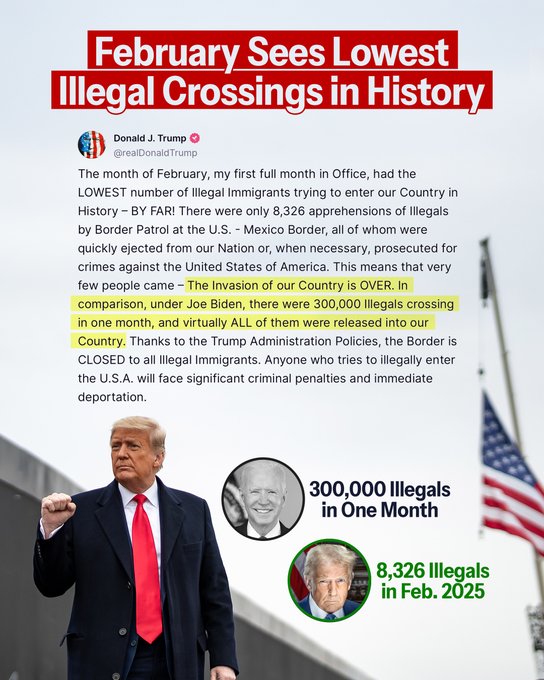illegal immigration
Panama’s Incoming President Wants To Shut Down His Country’s Most Treacherous Route For Migrants — But Will It Work?
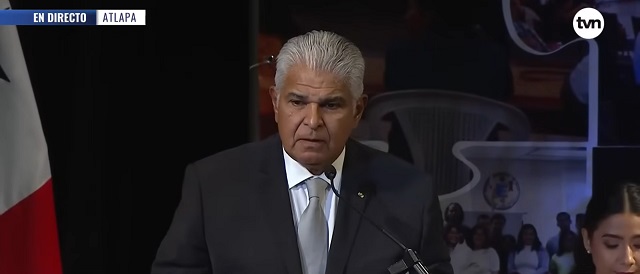
 From the Daily Caller News Foundation
From the Daily Caller News Foundation
Panama’s new president-elect is pledging to close a key corridor used by hundreds of thousands of migrants en route to the U.S., but experts and Panamanians aren’t so sure it can be done.
President-elect Jose Raul Mulino handily won the Panamanian presidential election earlier in May, riding a wave of voter discontent over the country’s slow economic growth and an endorsement from a popular former president. The 64-year-old lawyer also campaigned on a pledge to end the illegal immigration that runs through the tiny Central American nation’s Darien gap — but some question the feasibility of that pledge, given the vastness of the jungle, the cartels that populate it and the sheer amount of migrants flowing through it.
“While President Mulino’s promise to close the Darien Gap to migrants appears to be made in good faith, it’s unclear how he could ever actually deliver,” Matt O’Brien, director of investigations for the Immigration Reform Law Institute, said to the Daily Caller News Foundation. “The region consists of thousands of square miles of jungle that are virtually impossible to police.”
“And the gap itself is already home to massive migrant assistance operations that are funded by politically-potent, anti-borders groups from all over the world,” O’Brien added. “None of these organizations are likely to close up shop and go home without a fight.”
The number of illegal immigrants crossing the Darien Gap is incredibly massive — and rising. More than half a million migrants passed through the region in 2023, double the nearly 250,000 that had crossed the year before, according to the Council of Foreign Relations.
“The border of the United States, instead of being in Texas, moved to Panama,” Mulino said on the campaign trail. “We’re going to close the Darien and we’re going to repatriate all these people,” referring to a vast jungle region across Panama and Colombia known as the Darien Gap.
The pledge has received notable coverage from American media, and the Secretary of State’s office made mention of anticipated cooperation on the issue shortly after Mulino’s election victory.
The Darien Gap, however, is roughly 40 miles wide and 100 miles long, with a combination of rainforests and mountains and virtually no government presence, according to the Guardian. Hiking through the region can take days.
The area is also under the de facto authority of drug-trafficking organizations such as the Revolutionary Armed Forces of Colombia (FARC) and the Gulf Clan paramilitary group, according to the Council on Foreign Relations. The groups are known to extort and sexually assault travelers who pass through the region.
The idea of closing off the Darien has long been regarded as too much of a burden to accomplish, given these factors.
“Panama closed their border,” Wisconsin GOP Rep. Tom Tiffany said in 2021 after a trip to the Darien Gap. “But they, in effect, can’t because of the incredible crush of migrants that are coming from all over the world.”
More recently, Juan Pappier, the Americas deputy director at Human Rights Watch, framed Mulino’s promise to close the Darien Gap as “virtually impossible.”
The majority of migrants crossing the Darien Gap are Venezuelan nationals, but people from Ecuador, Haiti and other African and Asian countries also utilize these routes to make it to the U.S. border.
Panamanians have made notice of the enormous flow of migrants crossing their country on a daily basis.
“It’s impossible to not run into a foreigner who is begging for money or puts their child in front of you to beg for money, or sell you chewing gum or candy,” Allan Baitel, a born-and-raised Panamanian citizen, told the DCNF. “We have a lot of individuals who are present on the streets at all times, 24 hours a day with signs asking for help.”
Baitel noted that the government is “doing its best” to mitigate disruptions to daily Panamanian life by getting the migrants off the street and moving them to the border of Costa Rica. While he acknowledged the difficulty in closing up the Darien Gap, he expressed optimism over Mulino’s background.
“It’s going to be very hard to close the gap, very difficult,” he said, noting that Colombia was unlikely to help in the effort. Colombia’s leftist president, Gustavo Petro, has long been hesitant to adopt measures to physically bar migrants from entering the jungle, claiming that a more humanitarian approach should be taken.
“Let me tell you that Mulino’s background is in security,” Baitel said. “He has preparation in having to deal with a lot of these issues, so he may have something up his sleeve.”
Currently, the Panamanian government’s policy has been to immediately bus incoming migrants to the Costa Rican border, allowing them to carry on in their U.S.-bound journey. In a recent radio interview, the incoming president said most would-be migrants would simply not even try to cross Panama once he begins deporting them.
“Because when we start to deport people here in an immediate deportation plan the interest for sneaking through Panama will decrease,” Mulino said in the radio interview. “I assure you they are going to say that going through Panama is not attractive because they are deporting you.”
For many Panamanian citizens, the crisis hasn’t made much of a personal impact on them since the vast majority of the migrants are quickly moving on and out of the country.
“We don’t see that many, no one wants to stay here. They want to get to the shining city on the hill,” said Surse Pierpoint, a third-generation Panamanian who spoke to the DCNF.
Pierpoint said that the topic of immigration doesn’t even crack the “top five” issues that matter to him at the moment. Like many other voters, Pierpoint cited the tough economic times the country has faced and he liked Mulino’s agenda for the private sector.
Panama, once the top performing economy in Latin America, has struggled with credit downgrades, slow economic growth, less foreign direct investment and the closing of a major copper mine. The president-elect campaigned on a pledge to bring life back into the private sector with a pro-market agenda.
As for closing the Darien Gap, Pierpoint has doubts: “I don’t know how he can do that frankly,” he said. “It sounds good, but I don’t see how it’s feasible in the short term.”
While so much attention has been focused on Mulino’s ability to close the migration routes himself, policy experts in Washington, D.C,. and locals in Panama alike also pointed the finger back at the Biden administration. The crisis taking place in this Latin American isthmus, they say, begins and ends at the White House.
“Panama president-elect Jose Mulino’s pledge to close the Darien Gap route that migrants are traversing on their way to the U.S. southern border demonstrates the far-reaching negative consequences of Pres. Biden’s immigration policies,” Eric Ruark, director of research at NumbersUSA, said to the DCNF. “This is a humanitarian crisis entirely of President’ Biden’s making, and Panama is just one of the countries dealing with the fallout.”
“All of this has to do with the United States,” Baitel added. “It will not cease until there’s a very drastic change in the United States.”
illegal immigration
Court attempts to halt Trump deportations, El Salvador president says ‘too late’
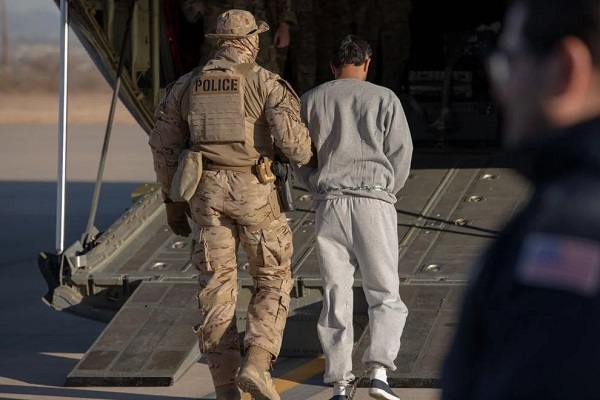
From The Center Square
By
A class action lawsuit was filed on Saturday against the Trump administration after President Donald Trump signed an executive order invoking the Enemy Aliens Act to target, arrest and remove violent Venezuelan prison gang members, Tren de Aragua (TdA), from the U.S.
The lawsuit was filed by the American Civil Liberties Union Foundation on behalf of five Venezuelans illegally in the country who were detained in Texas and New York. The lawsuit was filed in U.S. District Court for the District of Columbia.
On Saturday, nearly 300 violent illegal foreign nationals were removed from the U.S. and arrived in El Salvador with the cooperation of El Salvadoran president Nayib Bukele after reaching an agreement with Secretary of State Marco Rubio.
“The first 238 members of the Venezuelan criminal organization, Tren de Aragua, arrived in our country,” Bukele said in a post on X. “They were immediately transferred to CECOT, the Terrorism Confinement Center, for a period of one year (renewable).”
El Salvador also received 23 MS-13 gang members from the U.S. who were wanted by Salvadoran authorities, Bukele said. They include two ringleaders, one of whom “is a member of the criminal organization’s highest structure.” Those sent to El Salvador by the U.S. will help Bukele’s government “finalize intelligence gathering and go after the last remnants of MS-13, including its former and new members, money, weapons, drugs, hideouts, collaborators and sponsors.
“As always, we continue advancing in the fight against organized crime. But this time, we are also helping our allies, making our prison system self-sustainable, and obtaining vital intelligence to make our country an even safer place. All in a single action. May God bless El Salvador, and may God bless the United States,” he said.
The U.S. government is paying a small fee to detain them, Bukele said, and the prison is also making money because it requires inmates to work. These additional inmates, “combined with the production already being generated by more than 40,000 inmates engaged in various workshops and labor under the Zero Idleness program, will help make our prison system self-sustainable,” he said, noting that it costs $200 million a year to maintain.
In response, Rubio thanked Bukele saying, “El Salvador has agreed to hold the violent criminals “in their very good jails at a fair price that will also save our taxpayer dollars. President Nayib Bukele is not only the strongest security leader in our region, he’s also a great friend of the U.S.”
In an emergency hearing held on Saturday, a federal judge ruled that deportations of violent Venezuelans be temporarily halted and those who were illegally in the country and already removed be returned. The ACLU said the order blocked the administration “from deporting anyone under the Alien Enemies Act while the case proceeds. Flights carrying Venezuelan immigrants the DHS attempted to deport have been ordered to turn around and return to the U.S.”
A U.S. federal judge has no jurisdiction over foreign governments.
In response, Bukele posted on X, “Oopsie … Too late,” with a laughing emoji.
Bukele also posted videos and pictures of them arriving in El Salvador in handcuffs. The video shows them being met by El Salvadoran military wearing riot gear and transported in armored vehicles to CECOT. The videos depict El Salvadoran officials lifting up their shirts to show tattoos of gang member affiliation, officials shaving the heads of kneeling inmates and their admittance as CECOT inmates.
Today, the first 238 members of the Venezuelan criminal organization, Tren de Aragua, arrived in our country. They were immediately transferred to CECOT, the Terrorism Confinement Center, for a period of one year (renewable).
The United States will pay a very low fee for them,… pic.twitter.com/tfsi8cgpD6
— Nayib Bukele (@nayibbukele) March 16, 2025
Cooperation between the U.S. and El Salvador expanded under Trump and Rubio, representing a reversal of Biden administration policy that used taxpayer money and planes to transport illegal foreign nationals into the U.S.
Trump has been aggressively targeting of TdA after a record more than 1 million Venezuelans illegally entered the U.S. under the Biden administration, including TdA members expanding operations in at least 22 states, The Center Square first reported.
Under the Trump administration, Venezuelan repatriation flights also began, paid for by the Venezuelan government, negotiated by the Trump administration, The Center Square reported.
illegal immigration
“The Invasion of our Country is OVER”: Trump reports lowest illegal crossings in history
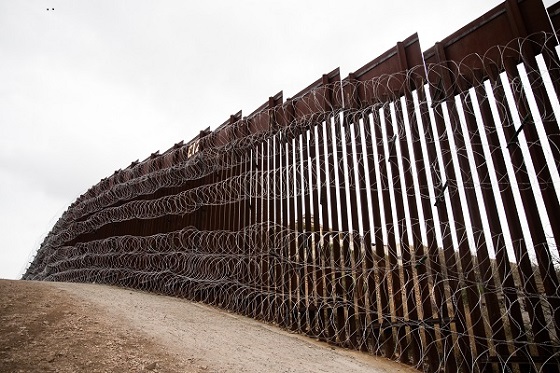
 MxM News
MxM News
Quick Hit:
President Donald Trump announced on Saturday that illegal immigrant apprehensions at the southern border plummeted to just 8,326 in February—marking a historic low. In a Truth Social post, Trump declared, “The Invasion of our Country is OVER,” crediting his administration’s tough enforcement measures for the drastic reduction.
Key Details:
-
The figure represents a staggering 96% drop from December 2023, when illegal crossings under Joe Biden’s administration peaked at 301,981.
-
Trump emphasized that those caught illegally entering the U.S. were “quickly ejected from our Nation or, when necessary, prosecuted for crimes against the United States of America.”
-
Trump credited executive action, including an emergency border declaration, military deployments, the end of birthright citizenship, and a crackdown on sanctuary cities, for the sharp decline in illegal entries.
Diving Deeper:
President Trump’s first full month back in office saw a seismic shift in border security policy, leading to what he called “the lowest number of illegal border crossings in decades.” In a Truth Social post on Saturday, Trump highlighted the stark contrast between his administration and Biden’s, stating:
“This means that very few people came – The Invasion of our Country is OVER. In comparison, under Joe Biden, there were 300,000 Illegals crossing in one month, and virtually ALL of them were released into our Country. Thanks to the Trump Administration Policies, the Border is CLOSED to all Illegal Immigrants.”
Upon taking office, Trump signed multiple executive orders that significantly curtailed illegal immigration. These include reinstating policies that allow expedited removals, deploying U.S. troops to the southern border, resuming construction of the border wall, and ending Biden-era programs that facilitated migrant entry through humanitarian parole. Additionally, the Department of Homeland Security (DHS) reversed previous Biden restrictions on Immigration and Customs Enforcement (ICE), leading to a sharp uptick in interior enforcement.
According to DHS data obtained by Fox News Digital, ICE interior arrests skyrocketed by 137% in just three weeks, with 11,791 arrests recorded from Jan. 20th to Feb. 8th—compared to 4,969 during the same period in 2024. High-profile raids in sanctuary cities have also yielded thousands of arrests, including gang members and violent offenders.
The economic impact of Trump’s border policies is already being felt. Federal funds that had been allocated to house illegal immigrants in hotels, particularly in cities like New York, are being clawed back. A recent executive order directed all federal agencies to identify and cut off taxpayer-funded programs that benefit illegal immigrants.
Despite congressional gridlock preventing any new border legislation, Trump’s administration has relied solely on executive authority to crack down on illegal immigration. His message to potential border crossers remains clear: “Anyone who tries to illegally enter the U.S.A. will face significant criminal penalties and immediate deportation.”
-

 Uncategorized1 day ago
Uncategorized1 day agoPoilievre on 2025 Election Interference – Carney sill hasn’t fired Liberal MP in Chinese election interference scandal
-

 2025 Federal Election1 day ago
2025 Federal Election1 day ago2025 Federal Election Interference from China! Carney Pressed to Remove Liberal MP Over CCP Bounty Remark
-

 Business2 days ago
Business2 days agoCuba has lost 24% of it’s population to emigration in the last 4 years
-

 Media1 day ago
Media1 day agoTop Five Huge Stories the Media Buried This Week
-

 2025 Federal Election1 day ago
2025 Federal Election1 day ago2025 Election Interference – CCP Bounty on Conservative Candidate – Carney Says Nothing
-

 International2 days ago
International2 days agoTrump signs executive order to make Washington D.C. “safe and beautiful”
-

 Censorship Industrial Complex23 hours ago
Censorship Industrial Complex23 hours agoWelcome to Britain, Where Critical WhatsApp Messages Are a Police Matter
-
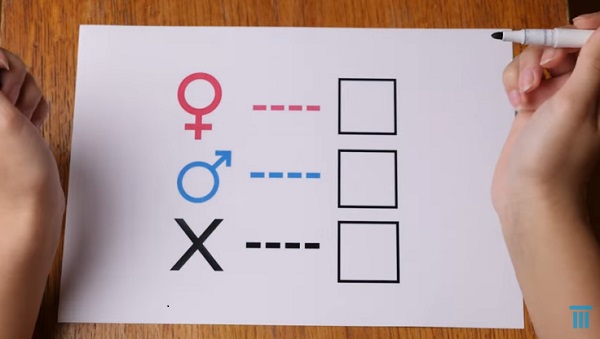
 Aristotle Foundation2 days ago
Aristotle Foundation2 days agoCanada has the world’s MOST relaxed gender policy for minors


